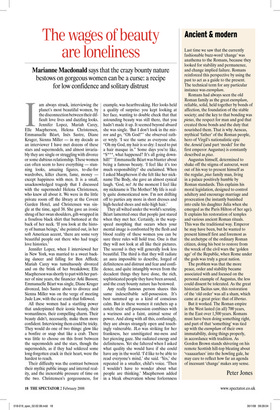Ancient & modern
Last time we saw that the currently fashionable buzz-word ‘change’ was anathema to the Romans, because they looked for stability and permanence, and change implied failure. Romans reinforced this perspective by using the past to act as a guide to the present. The technical term for any particular instance was exemplum.
Romans had always seen the old Roman family as the great exemplum, reliable, solid, held together by bonds of affection, the foundation of the stable society; and the key to that bonding was pietas, the respect for man and god that created those bonds and the duty that nourished them. That is why Aeneas, mythical ‘father’ of the Roman people, hero of Virgil’s nationalistic epic the Aeneid (and part ‘model’ for the first emperor Augustus) is constantly described as pius.
Augustus himself, determined to shake off the stigma of autocrat, went out of his way to present himself as the regular, pius family man, living in a palace positively humble by Roman standards. This explains his moral legislation, designed to control adultery and encourage marriage and procreation (he instantly banished into exile his daughter Julia when she emerged as the Paris Hilton of her age). It explains his restoration of temples and various ancient Roman rituals. This was the traditional way. Emperor he may have been, but he wanted to present himself first and foremost as the archetype of the ordinary Roman citizen, doing his best to restore from the wreck of the civil wars the ‘golden age’ of the Republic, when Rome under the gods was truly a great nation.
The problem was that the more peace, order and stability became associated with and focused on the personal example of Augustus, the less could dissent be tolerated. As the great historian Tacitus saw, this restoration of the ‘old order’ was all a sham, which came at a great price: that of libertas.
But it worked. The Roman empire in the West lasted (in all) 700 years, in the East over 1,500 years. Romans must have been doing something right, and part of that ‘something’ was tied up with the exemplum of their own immutability, doing things properly, in accordance with tradition. As Gordon Brown stands shivering on his remote Scottish hill-top bleating about ‘vaaaaarlues’ into the howling gale, he may care to reflect how far an agenda of incessant ‘change’ makes any sense.
Peter Jones


































































 Previous page
Previous page